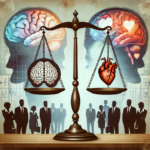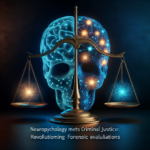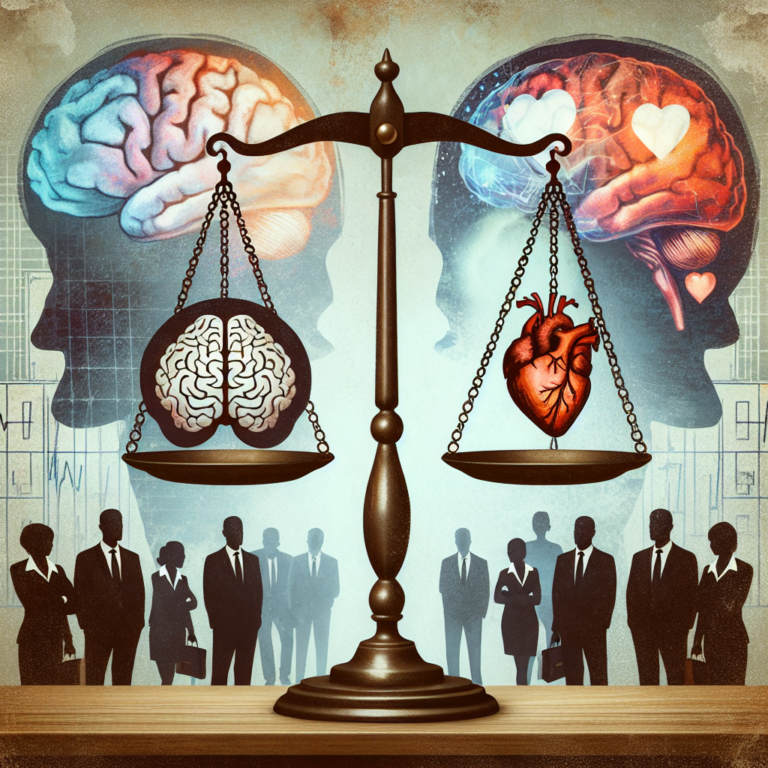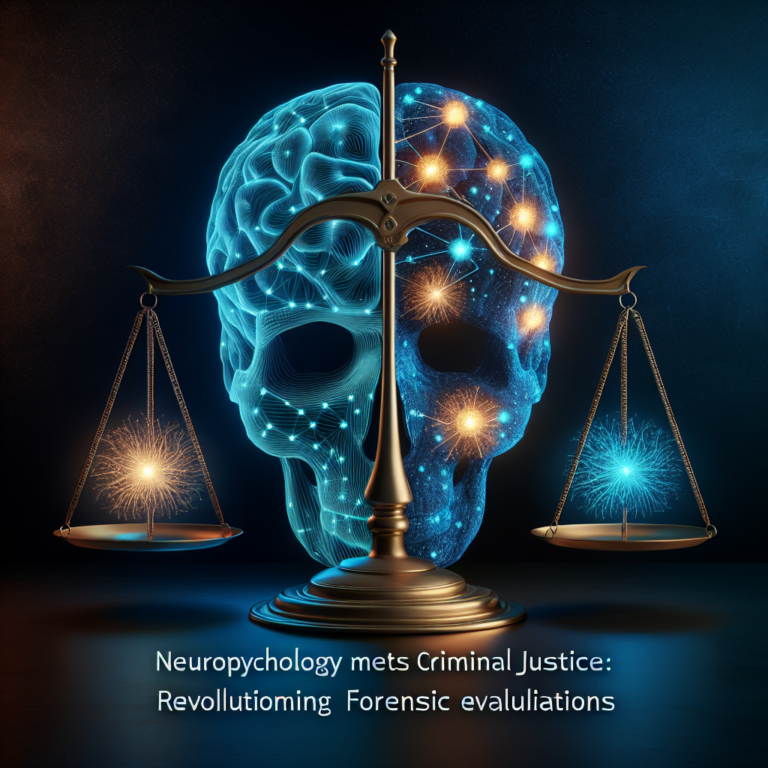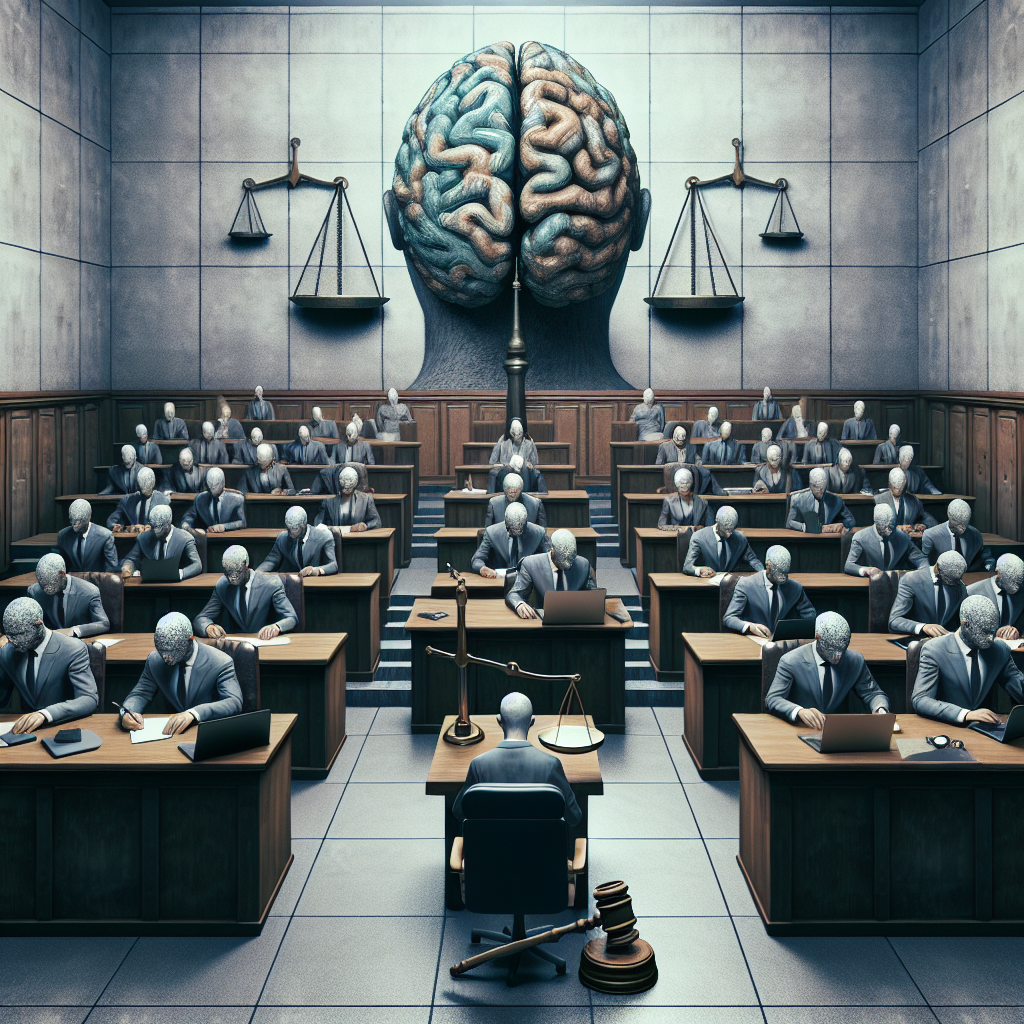
Introduction
As society continues to evolve, so does our understanding of mental health. Mental illness in court has been a complex subject, intricately woven into the fabric of the justice system. The insanity defense, once viewed with skepticism and misunderstanding, is now gaining recognition as a pivotal aspect of our legal framework. Understanding the nuances of this defense is not just for legal experts; it’s a conversation we all need to engage in. The implications of how courts handle mental illness can affect everything from sentencing to rehabilitation and societal perceptions of mental health. This article delves into the evolving role of the insanity defense and examines its significance for all of us.
The Insanity Defense: A Historical Perspective
Early Origins
The concept of an insanity defense can be traced back to ancient legal traditions. For instance, in ancient Greece, individuals deemed mentally ill were often absolved of responsibility for their actions. Fast-forward to the 19th century, the M’Naghten Rule was established in England, setting a precedent that still influences legal systems worldwide. This rule stipulates that a defendant might be excused from criminal liability if, at the time of the crime, they were suffering from a severe mental disorder that prevented them from understanding the nature of their actions.
The Insanity Defense in Modern Context
Today, the standard for insanity varies significantly between jurisdictions. For instance, some states in the U.S. utilize the M’Naghten Rule, while others apply the Durham Rule or the American Law Institute’s Model Penal Code standard. This inconsistency raises questions: How can we ensure justice for mentally ill defendants while maintaining public safety?
The Evolving Legal Framework
Changes in Legislation
In recent decades, mental illness in court has prompted legislative shifts aimed at addressing deficiencies in the justice system. The Insanity Defense Reform Act of 1984 marked a significant transformation in federal courts, tightening standards and shifting the burden of proof to the defense. The evolving legal landscape reflects a broader recognition of mental health issues and their implications for accountability in criminal cases.
The Role of Expert Testimony
Central to the insanity defense is the reliance on expert testimony. Mental health professionals are tasked with evaluating defendants and providing insights into their psychological state. This reliance raises ethical questions: How can the courts ensure that these evaluations are objective and comprehensive? Effective cross-examinations can either bolster or undermine a defense, making it crucial for legal representatives to strategize meticulously.
Case Studies: Real-World Applications
The Case of John Hinckley Jr.
One of the most notorious cases involving the insanity defense is that of John Hinckley Jr., who attempted to assassinate President Ronald Reagan in 1981. Hinckley’s defense team successfully argued that he was suffering from mental illness at the time of the attempted assassination, invoking the insanity defense. His acquittal stirred public outrage, leading to changes in laws pertaining to the insanity defense across several states. This case serves as a poignant reminder of the delicate balance we must maintain between justice and understanding mental illness in court.
| Aspect | Details |
|---|---|
| Year | 1981 |
| Verdict | Not guilty by reason of insanity |
| Public Reaction | Outrage and fear |
| Legislative Response | Reform of insanity standards |
The Andrea Yates Case
In an equally heart-wrenching case, Andrea Yates drowned her five children in 2001, claiming she was driven by severe postpartum psychosis. Initially convicted of capital murder, her conviction was later overturned, and she was found not guilty by reason of insanity. This case brought to light the often-overlooked realities of mental illness, especially in cases involving women and postpartum conditions. It highlighted the necessity of understanding mental illness in court, advocating for a legal system that comprehends the complexities of the human psyche.
The Challenges of the Insanity Defense
Stigma Surrounding Mental Illness
Despite progress, stigma remains a significant barrier. There is often a public perception that those who utilize the insanity defense are trying to evade justice. This misconception complicates the legal process and can serve as an emotional burden for defendants. We must acknowledge that mental illness is not a moral failing but a legitimate health issue requiring compassion and understanding.
The Burden of Proof
One of the most contentious issues revolving around the insanity defense is the burden of proof. In most jurisdictions, the responsibility lies with the defendant to prove their insanity, which can be a daunting task. This requirement often leads to questions of fairness: Should someone dealing with mental illness bear such a heavy burden, considering the very nature of their condition?
| Burden of Proof | Details |
|---|---|
| Who Carries the Burden? | Defendant |
| Impact on Defense | Higher difficulty in court |
| Call for Reform? | Increasing demand for change |
Mental Illness Assessment: The Role of Psychiatrists
Evaluations in the Courtroom
Psychiatrists play a pivotal role in assessments that can make or break an insanity defense. They must evaluate the defendant’s mental capacity, intending to establish whether the defendant understood the nature of their actions at the time of the crime. These evaluations are not merely check-box exercises; they require extensive interviews, tests, and sometimes even collateral information from family members or other witnesses.
Limitations of Psychological Assessments
However, psychiatric evaluations are not immune to criticism. Questions arise regarding their reliability and the potential for bias. Experts may hold differing opinions on a defendant’s mental state, and the subjective nature of psychiatric assessments can complicate jury decisions. Thus, it becomes paramount that mental health professionals remain objective and have their analyses anchored in established medical standards.
The Intersection of Public Perception and Legal Proceedings
Media Representation of Mental Illness
Media portrayals of crime and mental illness frequently skew public perception, leading to misconceptions about what constitutes a legitimate insanity defense. High-profile cases are often sensationalized, emphasizing the criminal act rather than the underlying mental health issues. This distortion can shape opinions and ultimately affect jury decisions.
Advocacy for Mental Health Awareness
Given the significant social stigma attached to mental illness, advocacy organizations have emerged to educate the public. Efforts to promote mental health awareness can foster understanding that not all individuals with mental illness are violent offenders. This can assist in normalizing conversations around mental health, making legal proceedings less adversarial and more rehabilitative.
Future Directions and Reforms
Legislative Initiatives
As we move forward, there is a growing consensus that the insanity defense requires reform to better reflect our understanding of mental illness. Some proposals advocate for a reassessment of standards and a more collaborative approach between mental health professionals and legal practitioners. This line of thought emphasizes the importance of creating more humane systems that can execute justice and support mental health recovery.
A Call to Action
Moreover, public and private sectors must collaborate to establish legislative frameworks that address mental health holistically—beyond the courtroom. Funding mental health initiatives and improving access to care can significantly impact how cases are managed and perceived. The goal is to promote a legal culture that prioritizes rehabilitation over punishment, ensuring those with mental illnesses receive the care they need rather than simply facing incarceration.
Conclusion
The conversation surrounding mental illness in court and the evolving role of the insanity defense is far from concluded. As our understanding of mental health continues to grow, so must our legal systems, ensuring they are equitable, transparent, and compassionate. Recognizing mental illness as a legitimate factor in assessing responsibility is crucial. Only then can we aspire toward a legal landscape that seeks to understand rather than simply condemn.
In light of the above discussions, it’s clear that mental health issues are as pressing in the courtroom as they are in society at large. This ongoing discourse necessitates the involvement of not just legal practitioners but everyone—every individual has a role to play in fostering awareness and understanding of mental health.
FAQs about Mental Illness in Court: The Evolving Role of the Insanity Defense
1. What is the insanity defense?
The insanity defense allows a defendant to claim that they were not responsible for their actions due to a significant mental illness at the time of the crime, thereby arguing for acquittal based on their mental state.
2. How does the burden of proof work in an insanity defense?
Typically, the defendant carries the burden of proof, meaning they must provide evidence to support their claim of insanity, often through expert testimony from mental health professionals.
3. Can someone who pleads insanity be released back into society?
Yes, individuals found not guilty by reason of insanity are often placed in mental health facilities rather than prison. Their release is contingent on assessments that determine they no longer pose a threat to themselves or others.
4. What psychological evaluations are involved in the insanity defense?
Psychologists may conduct comprehensive assessments, including interviews and standardized tests, to evaluate the defendant’s mental state and ability to understand the nature of their actions.
5. Why is public perception of the insanity defense often negative?
Negative perceptions often stem from media portrayals of crime, where mental illness is sensationalized. The misunderstanding that all individuals with mental disorders are violent can fuel stigma and bias against those using the insanity defense.
In conclusion, the exploration of mental illness in court through the lens of the insanity defense is essential for evolving our justice system. By fostering an understanding that bridges mental health and law, we can build a society that prioritizes both accountability and compassion.

